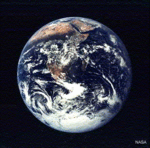Here is America’s most inconvenient truth. It’s the one point on which Karl Rove and George W. Bush are historically right, and all their critics — me included — are wrong. (Above, "The War Prayer," a piece by America’s greatest writer, Mark Twain, which he chose to hold from publication until after his death.)
For nearly our entire history the American political party which has counseled peace, which has counseled patience, and which has counseled negotiation has been rejected by the voters.
The sin began with our first contested election, in 1800. John Adams worked frantically to avoid open war with France. Thomas Jefferson hammered him on it for weakness, and won the Presidency before Adams could announce he had succeeded.
Notice the code words in Jefferson’s famous letter outlining his views:
I was a sincere well-wisher to the success of the French revolution,
and still wish it may end in the establishment of a free &
well-ordered republic; but I have not been insensible under the
atrocious depredations they have committed on our commerce.
So it has continued from that day to this. Cry peace, you are rejected. Cry war, you are exalted.
- James Polk’s war of aggression against Mexico was seen, in retrospect, as a crime deserving Civil War by Ulysses S. Grant, who fought in it, and questioning it cost Abraham Lincoln his early political career.
- Franklin Pierce and James Buchanan are considered "weak" Presidents for seeking to avoid Civil War.
- It is the Spanish-American war, and the Philippine War which followed it, which are the subject of Mark Twain’s "The War Prayer."
- The only sustained period of a peace party ascendant was from 1920-1933, when Republican isolationists rejected not just war but the hard work of peace-making, exemplified by the League of Nations.
- The isolationist movement was utterly destroyed by the events of December 7, 1941, and Republicans became the party most committed to the Cold War from 1946 to this very day.
This is the most difficult test we face. On this point, we must overcome our entire history.
Wars of occupation no longer pay. They haven’t paid for a generation. But we lack the political vocabulary, and the political will, to gather a continuing majority for the simple proposition that killing foreign men does not maintain the peace.
This is why I argue for the War Against Oil. By placing the economic reform we need in the frame of our martial aims against the Muslim world, against Russia, and against Venezuela — all the world’s biggest oil exporters — the hope is we can transform our will to sacrifice for blood into a willingness to sacrifice for the re-terraformation of Earth.











